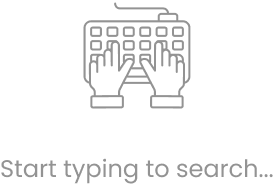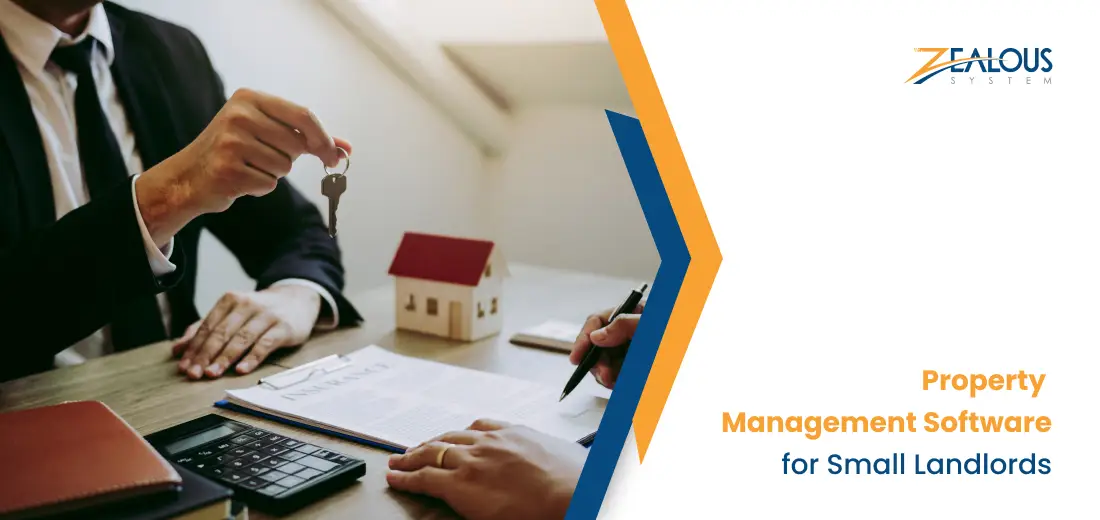


If you thought property management software was only for large companies with big portfolios, think again! This software is flexible and can be customized for anyone, whether you’re a small landlord or property manager. It can help you handle tasks like rent collection, maintenance management, and tenant communication more easily.
Managing rental properties on your own can be challenging. You need to keep track of rent, maintenance requests, and tenant communication, all of which can get overwhelming. But the good news is, technology is here to help with property management software.
In this blog, we’ll explore the trends and features that make property management software perfect for small landlords. We’ll show how it can simplify rent collection, manage maintenance requests, and make communicating with tenants much easier. With the right software, small landlords can simplify property management, stay organized, and increase profits.
Property management software is a tool that assists landlords and property managers in handling daily tasks related to renting out properties. For small landlords, this software can be a real game-changer. Think of it as a digital assistant that helps you keep track of everything related to your rental properties. It can handle tasks like collecting rent payments, managing leases, scheduling maintenance requests, and keeping track of expenses.
Instead of juggling paperwork and spreadsheets, you can use property management software to have all your information in one place. This makes it easier to stay organized, save time, and make sure nothing falls through the cracks. Whether you’re managing one property or a few, this software simplifies the process and helps you run your rental business more smoothly.
Property management software is available in different levels of complexity to suit various needs. For a landlord with just one property, there are simpler options that cover the basics. On the other hand, if you’re managing several properties, you might need a more advanced system with additional features. One of the key benefits of modern property management software is its scalability. This means you can grow your property portfolio without needing to switch to a new system.
Property management software can be a game-changer for small landlords, offering a range of benefits tailored to make managing smaller portfolios more efficient. Here are some key benefits of property management system:
Property management software automates rent collection by sending reminders and allowing tenants to pay online. This eliminates the need for bank visits and prevents payment delays.
Another advantage of using property management software for small landlords is that it eliminates the need for handling piles of paperwork. All tenant information is securely stored in one place, allowing landlords to easily access lease agreements, maintenance requests, and payment history with just a few clicks.
Property management software makes handling maintenance requests easy for smaller landlords. This benefits both tenants and landlords. Tenants can submit their requests online, while landlords can assign tasks to contractors directly through the platform, ensuring quick and efficient resolution of issues.
Small landlords can easily monitor their income and expenses, making budgeting and tax season simpler. Property management software can automatically create detailed financial reports, giving clear insights into how the property is performing and its profitability, especially when managing a smaller portfolio.
For landlords with a few properties, time is valuable. Using property management software can be very helpful for small landlords. It automates tasks like rent collection, tenant communication, and maintenance management, allowing them to focus on expanding their portfolio or handling daily tasks more efficiently.

This feature of property management software makes rent collection easier by letting tenants pay online. Small landlords can spend less time managing checks and cash. The software also tracks payments and sends reminders for upcoming rent, helping to avoid missed payments and late fees. This automation keeps landlords organized and simplifies their finances.
For small landlords, affordability is key. The best property management software should offer pricing that fits their budget. Look for options with flexible pricing models, like free versions or flat monthly fees, instead of costly plans with unnecessary features. This allows landlords to access the tools they need without paying for extras they don’t use.
Managing multiple leases can be tough for small landlords, especially when it comes to remembering renewal dates and lease details. Property management software helps by automatically tracking lease dates and sending reminders for renewals. This ensures landlords never miss important deadlines, keeping rental agreements current and properties compliant with the terms.
Small landlords can benefit a lot from property management software that’s easy to use and works on both computers and mobile devices. When developing your software, make sure small landlords can manage their properties anywhere, whether they’re at home or on the move.
Choose platforms with simple designs that require little training. This flexibility allows landlords to complete tasks quickly, making property management more efficient.
One key feature of property management software that appeals to small landlords or those with fewer rental properties is the ability for tenants to submit maintenance requests directly through the software. This helps landlords manage requests more efficiently.
Instead of dealing with phone calls and emails, landlords get all maintenance requests in one place, making it easier to track and resolve issues quickly. This feature boosts tenant satisfaction by ensuring repairs are done promptly and reduces the landlord’s administrative tasks.

To develop property management software for small landlords, here’s a step-by-step breakdown to guide a software developer:
Focus on the needs of small landlords first. They usually handle a few properties and may not have the time to deal with complicated systems. Aim to make everything straightforward and easy to use. To better understand their requirements, review the features we discussed earlier. You can add these features to your property management software to help small landlords manage their properties efficiently.
The next step is to decide on the main features that will benefit small landlords. For tenant management, design a platform that keeps tenant details, lease information, and rent records all in one place. Add an online rent collection feature so tenants can pay easily, and set up automatic reminders for due payments.
Make maintenance requests simple in the property management software. Tenants should be able to report issues easily, and landlords should be able to assign tasks quickly. Include basic expense tracking to help landlords manage property finances. Add notifications for lease renewals, rent payments, and maintenance updates to ensure everything runs smoothly.
Choosing the right technology stack is critical for building a scalable and efficient platform. You’ll need a front-end that’s responsive and intuitive, with frontend frameworks like React or Angular providing a solid foundation for a user-friendly interface. For the backend frameworks, Node.js, Django, or ASP .NET are excellent options for handling data and logic.
You can use databases like MySQL or MongoDB can store tenant information, payments, and other key property data. Integrating a payment gateway like Stripe or PayPal will streamline rent transactions. Lastly, hosting the software on cloud platforms like AWS or Azure ensures scalability and security for users.
Small landlords prefer easy-to-use systems. Create a user interface (UI) that is simple and intuitive. Keep the dashboard straightforward, displaying essential details such as upcoming rent payments, maintenance requests, and monthly income. Use clear labels and a clean design with minimal elements when building property management software for small landlords.
Since many small landlords rely on mobile devices to manage their properties on the go, it’s crucial to make the software mobile-friendly. Whether you choose to build a mobile-responsive website or a dedicated real estate app using cross-platform app development platofrm like React Native or Flutter ensure the property management software runs smoothly across all devices. This flexibility will give landlords the freedom to manage their properties anytime, anywhere.
Once the core features are developed, the next step of property management software development for small landlords is rigorous testing. Conduct user testing with small landlords to gather feedback on how the software meets their needs. Pay close attention to ease of use, functionality, and overall experience. Based on their input, make improvements and fix any issues to ensure the software delivers exactly what the target users expect.
Finally, consider future growth. While the property management software is currently designed for small landlords, it’s essential to ensure it can grow with their needs.
As landlords add more properties or require advanced features, the software should easily adapt without becoming difficult to use. Creating a flexible platform from the beginning ensures the software supports their business growth smoothly and stays effective in the long run.
When it comes to the future of property management software for small landlords, a few key trends are likely to shape the landscape:
In the future, software might link to smart home devices like thermostats, security cameras, and leak detectors. This connection could let landlords easily monitor and control these systems from a single platform, simplifying property management even further.
Tenants can take care of more tasks on their own using the software, such as paying rent or submitting maintenance requests, without needing to contact landlords directly. This simplifies things for both tenants and landlords.
Instead of charging a large upfront fee, more software companies will likely switch to subscription pricing. This change makes it easier for small landlords to use advanced tools and features without spending too much. They only pay for what they need each month.
Property management software will take care of more tasks automatically. It will handle things like rent collection, sending reminders, and organizing maintenance requests without requiring your effort. This saves you time on routine work, letting you focus on more important activities.
AI can help landlords make smarter decisions by providing insights into tenant behavior and property performance. For example, it can suggest the best time to increase rent or recommend property improvements that offer the highest return, using data collected by the software.
In conclusion, choosing the right property management software is essential for small landlords who want to simplify their operations and grow their businesses. By carefully evaluating the available options and considering your specific needs, you can find a solution that simplifies daily tasks. From managing tenant communications to handling finances and scaling your operations, the right software can make a significant impact.
At Zealous System, a leading real estate software development company, we understand the unique challenges small landlords face. That’s why we specialize in developing customized property management software customized to your specific needs. Our team has the expertise to create solutions that enhance your property management process, making it more efficient and effective.
As technology continues to advance, staying updated with the latest trends and tools is crucial. With our support, you can ensure you’re equipped with the best software to stay ahead in a competitive market.
Our team is always eager to know what you are looking for. Drop them a Hi!
Comments